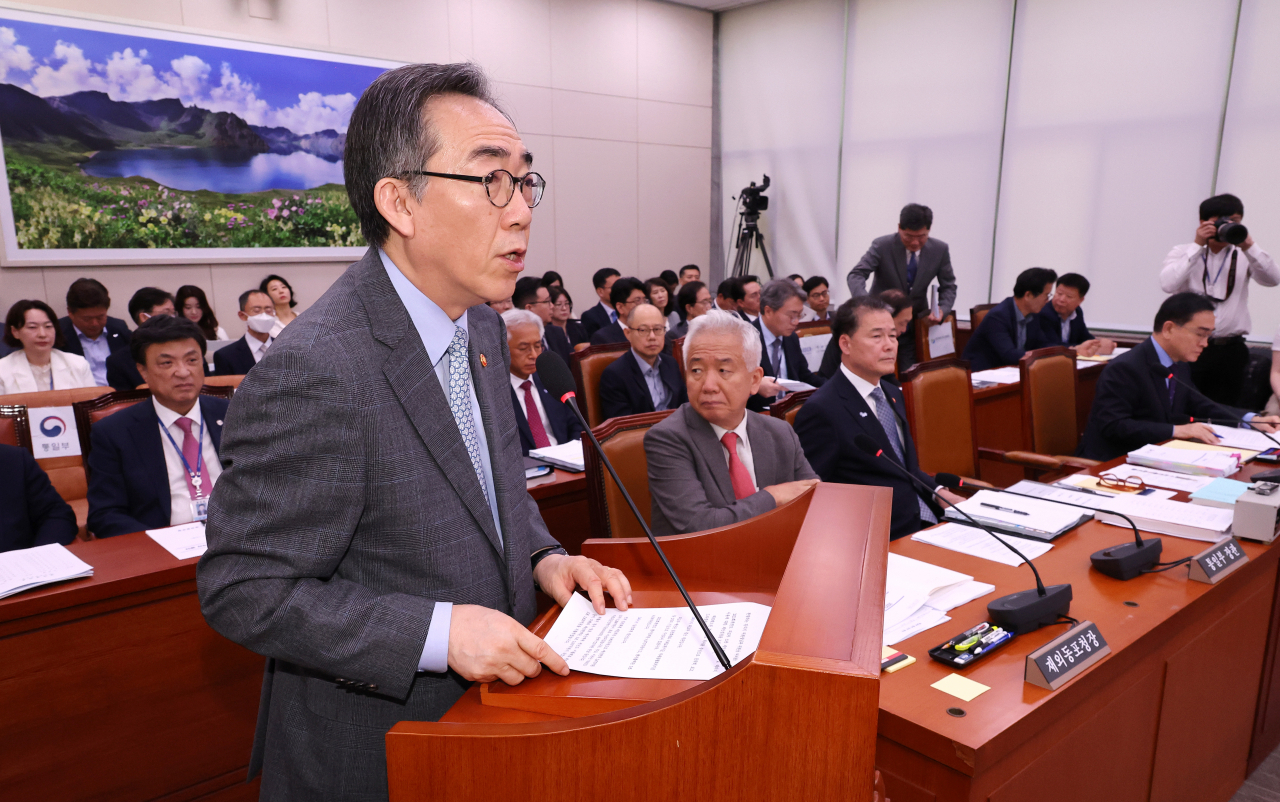 |
Foreign Minister Cho Tae-yul speaks during a parliamentary session at the National Assembly in Seoul, Tuesday. (Yonhap) |
Foreign Minister Cho Tae-yul on Tuesday rebutted the criticism that South Korea backed down in the negotiations with Japan regarding the UNESCO World Heritage listing of an old Japanese mine complex linked to wartime forced labor.
Cho made the point during a parliamentary session as criticism persists over the way the government negotiated with Tokyo to demonstrate the Sado gold and silver mines as a site where more than a thousand Koreans were forcibly taken to toil during World War II.
Critics have blamed the government for failing to get Japan to explicitly show the coercive nature of the mobilization of Koreans at the time, when Korea was under Japan's colonial rule.
"The criticism is that we have given up on the issue of coercion, but we have never given up on it," Cho said.
"We made it very clear to Japan from the beginning that the negotiations will only advance with the 2015 outcome as the minimum baseline," he added.
When Japan registered Hashima Island, another forced labor site, on the UNESCO World Heritage list in 2015, it publicly acknowledged the forced mobilization of Koreans to work under harsh conditions on the island and promised to set up an information center to remember the victims.
But Japan has not fully carried out its promise to build the information center near Hashima Island. On the basis of such actions, South Korea requested Japan take steps in advance to reflect the "whole history."
For the Sado mines, Japan has installed exhibits about the forced labor at a local museum near the mine site, a measure that Seoul officials have called a concrete step taken by Japan this time.
"I can say confidently that there has been progress as we secured (Japan's) implementation measures," Cho said. "I wouldn't be sitting here if (the coercion issue) had been omitted."
Cho also said that opposing the UNESCO listing should not be the goal but it should be about making continued efforts to put the history on record.
"We should focus on securing substantial implementation measures, documenting them in history, accumulating new histories if similar situations arise in the future," he said.
The foreign ministry said earlier it had proposed Japan use the expression "forced to work" in the museum exhibits on the Sado mines as a precondition for its consent to the UNESCO inscription, but Tokyo refused.
The Sado mine complex won UNESCO World Heritage status in July, upon the consensus of the 21 UNESCO committee members that include South Korea and Japan.
Critics have insisted that the Sado mine exhibits at the history museum lack descriptions about the Korean workers and how they were taken against their will to work at the mines. (Yonhap)







![[Weekender] Korea's traditional sauce culture gains global recognition](http://res.heraldm.com/phpwas/restmb_idxmake.php?idx=644&simg=/content/image/2024/11/21/20241121050153_0.jpg)